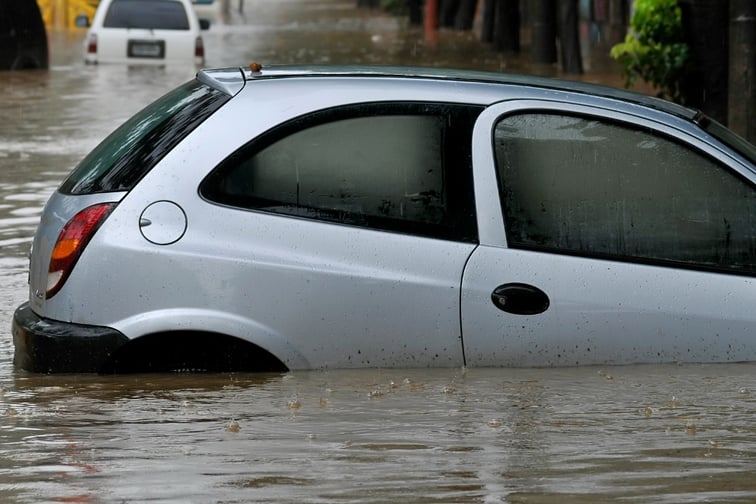

Following the catastrophic weather events that battered the country, New Zealand insurers are urging buyers to do their due diligence and check vehicles for signs of water damage and refer to the Waka Kotahi’s written-off vehicle register before purchases to make well-informed decisions.
According to the Insurance Council of New Zealand Te Kāhui Inihua o Aotearoa (ICNZ), 524 vehicles were added to the register as write-offs with the water damage annotation between Feb. 1 and Feb. 22. It stands to reason that the Auckland floods and Cyclone Gabrielle caused most, if not all these damages, and as such the council is urging buyers to check the register.
“Until they are properly repaired and certified as such, flooded vehicles pose a safety risk, which is why insurers write them off in the first instance,” ICNZ chief executive Tim Grafton said in a press release. “When writing them off, insurers deregister them as water damaged write-offs on Waka Kotahi’s Motor Vehicle Register then dispose of them through salvage companies.”
Vehicular failure is a problem that often takes weeks to become noticeable. This is because water easily gets into electrical and mechanical components, corroding them in the process, a scenario that takes place over time rather than instantaneously. These problems can affect many vehicular systems, including those related to safety.
Water-damaged write-offs can still be considered roadworthy, but they must pass an approved process first. These vehicles need to be inspected, repaired, and have that repair certified by Waka Kotahi-approved agents before they can be re-registered and put back on the road. That said, there will still be a permanent record in place for the vehicle as having been written off for water damage, even after it has been re-registered.
The existence of a written-off vehicle register is no excuse to skimp out on checking the vehicle itself. ICNZ said that while insurers act responsibly to get water-damaged vehicles written off, off the road, and deregistered as soon as possible, there is no system in place to ensure the safety of flood-affected uninsured vehicles. As such, these should be inspected either by main dealers or other qualified independent experts.
“Just because a vehicle that’s for sale isn’t on the register as being flooded, it can’t be taken for granted that it hasn’t been,” Grafton said. “It might just be that the owner didn’t have appropriate insurance in place to trigger a write-off. For the sake of everyone’s safety, it’s essential that buyers take particular care to have any vehicle professionally inspected to look for signs of water damage before purchase.”
While its effects on vehicles cannot be understated, it was the property sector that received the most damage from the effects of the Auckland floods and Gabrielle. A GlobalData report found that the two extreme weather events are poised to erode the profitability of New Zealand property insurers.
What are your thoughts on this story? Please feel free to share your comments below.
